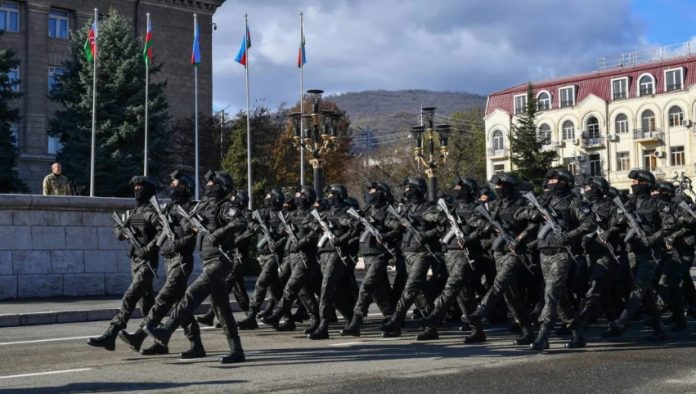Azerbaijani President Ilham Aliyev has met with Armenian Prime Minister Nikol Pashinyan for bilateral talks in St. Petersburg.
Azerbaijani officials said the country could move closer to a peace deal with Armenia to end their decade-long conflict following its lightning offensive in September to take control of the Nagorno-Karabakh region.
More than 100,000 people have been displaced by the military offensive in Nagorno-Karabakh, which has been under the control of ethnic Armenian forces backed by Armenia since the 1990s war.
The military action left the region virtually deserted, leading Armenian Prime Minister Nikol Pashinyan to claim that the offensive was an act of ethnic cleansing, which Azerbaijan denies. Following this, both sides accelerated talks on a peace agreement to stabilise relations and recognise each other’s borders.
In a rare sign of goodwill, the two sides exchanged prisoners of war on 13 December and issued a joint statement, one of the first not to be brokered by a third party.
The sides have already exchanged seven drafts of a potential relatively short peace agreement. Elchin Amirbayov, Special Ambassador to the President of Azerbaijan, said that the country is now awaiting Armenia’s response to its comments on the latest draft proposals. He noted:
What is important to understand is that at this crucial stage in negotiations, where apparently we’re not that much far away from the final agreement, [is that] we do need a result-oriented exercise. I know that that after three decades of negotiations and without no major result, there is a certain kind of fatigue and also frustration in both parties for how long we will continue just to see to meet each other without any reasonable results.
Nagorno-Karabakh has been internationally recognised as Azerbaijani territory, but efforts to end the conflict are complicated by Turkey, Iran, the US and the EU vying for diplomatic influence in the strategically important area. The area is geostrategically important because of the proposed “median corridor” – a transport corridor that would link China to Europe via Central Asia, the Caspian Sea and the South Caucasus.
One of the unresolved issues is the connection between Azerbaijan and its exclave of Nakhichevan. Armenia agreed to open a land transport link through its territory as part of a ceasefire agreement in November 2020, but progress has been slow. Azerbaijan is considering an alternative route via Iran if Armenia continues to resist opening the link.
